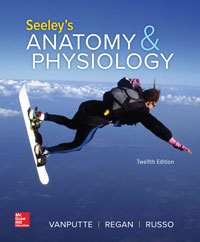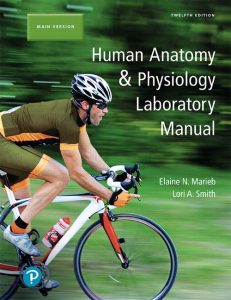Syllabus BIO 2320 Summer 2022 Tuesday and Thursday Lectures
Welcome to Human Anatomy and Physiology II, BIO 2320. This course combines two sections for lecture, then half of the class meets for lab on Tuesday and the other half meets for lab on Thursday. Labs are in SI 2087 & 2089. The laboratories are traditional laboratory sessions which allow the seeing, touching and feeling of body structures.
Course Description (from Catalog):
BIO 2320-4 Human Anatomy and Physiology II (3+3)
Prerequisite: BIO 2310 or permission of instructor
This is the second of two courses addressing the structure and function of the human body. Topics include endocrinology; circulation; and the respiratory, digestive, urinary, and reproductive systems. Course content and class level are designed for allied health science students and for human performance, sport or recreation professions majors.
Optional Course Materials:
- Dissection Guide and Atlas to the Mink, by David Smith and Michael Schenk, Morton Publishing;
- Free Resource through The Auraria Library: Visible Body 3D Human Anatomy Atlas is a digital collection of anatomy, physiology, and pathology visualizations and animations.
https://aurarialibrary.idm.oclc.org/login?url=https://atlas.visiblebody.com/
Link on how to use the 3D Human Anatomy Atlas.
Schedule of Activities
| Week/Day | Lecture(F2F) | Lab(F2F) | Reading |
| Week 1 Tuesday (6/14) | Review of Terminology, ANS, Endocrine System | Endocrine | Van Putte: Ch 1 and 16
Lab Manual: Ex 27 and Laboratory Objectives Photos |
| Week 1 Thursday (6/16) | Endocrine System | Endocrine | Van Putte: Ch 17 and 18
Lab Manual: Ex 27 and Laboratory Objectives Photos |
| Week 2 Tuesday (6/21) | Blood | Blood and Heart | Van Putte: Ch 19
Lab Manual: Ex 29, 30 |
| Week 2 Thursday (6/23) | Heart | Blood and Heart | Van Putte: Ch 20
Lab Manual: Ex 29, 30 |
| End of Week 2; June 23-25 | Lecture Exam One Online (through blood) | ||
| Week 3 Tuesday (6/28) | Heart | Blood Vessels | Lab Objectives Photos |
| Week 3 Thursday (6/30) | Blood Vessels | Blood Vessels | Van Putte: Ch 21
Lab Objectives Photos |
| Week 4 Tuesday (7/5) | Blood Vessels Lymphatics | Lab Exam 1 | Van Putte: Ch 22 |
| Week 4 Thursday (7/7) | Respiratory System | Lab Exam 1 | Van Putte: Ch 23 |
| End of Week 4 July 7-9 | Lecture Exam Two Online (through lymphatics) | ||
| Week 5 Tuesday (7/12) | Respiratory System | CV Physiology | Lab Manual: Ex 31 and 33 |
| Week 5 Thursday (7/14) | Digestive System | CV Physiology | Van Putte: Ch 24 and 25
Lab Manual: Ex 31 and 33 |
| Week 6 Tuesday (7/19) | Digestive System | Resp, Dig, Urinary, Repro Anatomy | Lab Manual: Ex 36 and 38; Laboratory Objectives Photos |
| Week 6 Thursday (7/21) | Urinary System | Resp, Dig, Urinary, Repro Anatomy | Van Putte: Ch 26
Lab Manual: Ex 36 and 38; Laboratory Objectives Photos |
| End of Week 6 July 21-23 | Lecture Exam Three Online (through digestive) | ||
| Week 7 Tuesday (7/26) | Urinary and Reproductive Systems | Resp Phys, UA, Movie | Van Putte: Ch 28
Lab Manual: Ex 37 and 41 |
| Week 7 Thursday (7/28) | Reproductive System | Resp Phys, UA, Movie | Lab Manual: Ex 37 and 41 |
| Week 8 Tuesday (8/2) | Development | Lab Exam 2 | |
| Week 8 Thursday (8/4) | No Lecture | Lab Exam 2 | Van Putte: Ch 29 |
| End of Week 8 Aug 4-6 | Lecture Exam Four Online (through development) |
Instructor Information: Dr. Clare Hays. Office SI 2032; Phone 303-615-0777; [email protected]
Office hours: Office hours are 7:30-9:40 and 12-12:30 Tuesday and Thursday in person, via Teams meetings, email or phone calls.
COURSE FORMAT:
The entire lecture portion of the course is a traditional lecture on campus. The only grades for lecture are the 4 online lecture exams. No attendance is taken. The labs are held on Tuesdays OR Thursdays on-campus in rooms SI 2087 and 2089. No attendance is taken in lab, but your presence will ensure better grades on the 2 lab exams. If you need to pop into a virtual format due to COVID concerns, you can follow this hyflex option online: this syllabus and these lab objectives, both on McGraw Hill Connect. But please inform me that you have done so!
IMPORTANT LINKS for Face-to-Face Lecture: Outlines, Learning Objectives, Recorded Lectures, and PowerPoint Slides may all be found at
https://sites.msudenver.edu/haysc/biology-courses/human-anatomy-and-physiology-ii-homepage-bio-2320/
IMPORTANT LINKS for Face-to-Face Lab:
There is a separate schedule for lab called Lab Objectives: BIO 2320 Lab Objectives Summer 2022
EXAMS, ASSIGNMENTS AND GRADES for Face to Face Course:
| Assignment/Assessment | Points |
| Lecture Exam One | 100 |
| Lecture Exam Two | 100 |
| Lecture Exam Three | 100 |
| Lecture Exam Four | 100 |
| Lab Exam One | 50 |
| Lab Exam Two | 50 |
| TOTAL POINTS POSSIBLE: | 500 |
Late Work Policy:
- Lecture Exams may be taken late at a 10% deduction per day late.
- Missed Lab Exams may be taken online through Canvas by 11:59 pm on Thursday 7/7 for Lab Exam One, and Thursday 8/4 for Lab Exam Two. After that they have a 10% deduction per day late.
Grading Scale: The total number of points possible for the course is 500 for the Face to Face course. Letter grades will be assigned on a percentage basis, as follows:
| A | 450-500 |
| B | 400-449 |
| C | 350-399 |
| D | 300-349 |
| F | Fewer than 300 |
LECTURE EXAMS:
There will be 4 lecture exams in the face to face course, each worth 100 points (50 questions) for a total of 400 points. All exams are online on Canvas. Exams open at 12 am on Thursdays and close at 11:59 pm on Saturdays on dates above at 11:59 pm. Lecture exams consist of multiple choice, ordering, matching, true/false questions, and a few fill in the blank questions, that are randomly selected from a pool of questions. Fill in the blank answers must be spelled correctly. A 10% deduction per day will be taken away from your exam scores for any exams taken and submitted after the due date. No late submissions once the semester is over. No other make-up opportunities exist. Exams are not comprehensive.
You will be given one chance to take each exam and a time limit of 50 minutes. These are open-note, open-book exams, but you may not collaborate with your classmates on any exams.
When you are ready to take the quiz, click on the quiz link, read the instructions, and then begin. After you have answered all of the questions, click “Submit” at the bottom. You will see your score immediately and grades may always be found in the Grades tab on the left of the Canvas course homepage. There is a practice test that you may try at any time to make sure your web browser is compatible with Canvas and to get familiar with the format. No points are awarded nor deducted for results on the practice test and you may take it repeatedly.
LABORATORY EXAMS: You must attend traditional on-campus laboratories each week. The labs will follow the laboratory objectives. There are 2 lab exams for the face to face labs, each with 25 questions, and worth 50 points. The in-class lab exams will consist of short answer and identification questions with one minute per station.
Due to the increased need to provide online exams, you will have an option of doing the lab exams online on Canvas instead of in class, if desired/needed. The online lab test is primarily fill in the blank questions randomly selected from a test bank and opens July 5 at noon for Lab Exam One and August 2 at noon for Lab Exam Two. The online tests have 25 questions at 2 points each, 25 minutes. You may not do BOTH the online test and the in-person test. There is a practice online lab test on Canvas if you wish to check it out.
Both the online and in-person lab exams will only test on material from the laboratory objectives.
Any missed face-to-face lab exam must be taken in the online format. Any lab exam not taken by 11:59 pm on the Thursday July 7 for Lab Exam One, and August 4 for Lab Exam Two, will have a 10% deduction per day late.
Student behavior:
a) The student assumes certain obligations of performance and behavior while attending MSU Denver. Refer to the student standards of conduct in your Student Handbook.
b) Cheating of any sort will result in immediate expulsion with a grade of F.
Student Support:
Access Center for Disability Accommodations and Adaptive Technology www.msudenver.edu/access; 303-556-8387; Plaza Suite 122.
Counseling Center (provides help with test anxiety) 303-556-3132; Tivoli 651.
Tutoring Center 303-556-6439; Tivoli 219; online tutoring is free for 20 hours per year at msudenver.edu – click on the student tab to log in for your free tutoring.
C O L L E G E O F L E T T E R S , A R T S , A N D S C I E N C E S
S Y L L A B U S S T A T E M E N T S – Summer 2022
See this Syllabus Addendum regarding COVID-19
Specific (Measurable) Student Behavioral Learning Objectives from Official Syllabus (format: 1, a, i, ii, etc.): Upon completion of this course the student should be able to:
Lecture
- Explain the functions of the organs of the respiratory, digestive and reproductive system.
- Explain the anatomy of the kidney and the functions of the nephron.
- Explain the initiation and conduction of impulses through the heart.
- Explain the functional anatomy of the heart.
- Explain the relationship between the hypothalamus and hypophysis, and the functions of the hormones of the hypophysis.
- Describe the functions and controls of the heart and blood vessels.
- Describe the role of erythrocytes in gas exchange and transport.
- Explain immune mechanisms.
- Explain mechanisms of blood clots.
- Describe mechanisms and controls of breathing.
- Describe excretory and regulator functions of the kidney.
- Explain general and specific endocrine control for all glands.
Laboratory
- Identify surface features of the body.
- Identify organs of respiratory, digestive, urinary and reproductive systems.
- Identify heart structure.


